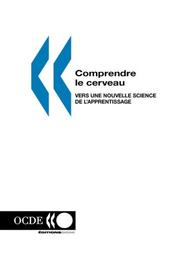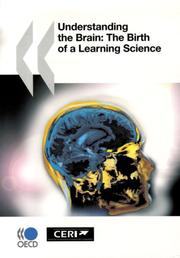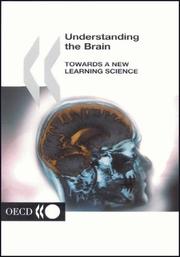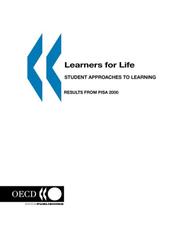| Listing 1 - 10 of 19 | << page >> |
Sort by
|
Book
Year: 2022 Publisher: Washington, D.C. : The World Bank,
Abstract | Keywords | Export | Availability | Bookmark
 Loading...
Loading...Choose an application
- Reference Manager
- EndNote
- RefWorks (Direct export to RefWorks)
Technology for Teaching (T4T) is the World Bank's program to assist countries implement effective, scalable teacher professional development (TPD) programs that use low- and high-technology solutions to train and support teachers/Pedagogical Leaders (PLs). T4T provides practical tools to policymakers and practitioners for designing and implementing operationally feasible tech-based TPD in their contexts, thus contributing to build inclusive and resilient education systems. This Note presents common barriers that teachers/PLs face at each TPD stage and offers operationally feasible, tech-based mitigation strategies. These will enhance access to and engagement with TPD, will improve application of skills and knowledge in the classroom, and can be implemented in low-resource contexts. Drawing on emerging research and successful on-the-ground programs that support teachers/PLs from across the globe, this Note can be used by policymakers and practitioners to consider a range of options to address implementation barriers and scale up TPD programs using technology.
Book
ISBN: 1283316927 9786613316929 0826106684 9780826106681 9781283316927 0826106676 9780826106674 661331692X Year: 2012 Publisher: New York Springer Pub. Co.
Abstract | Keywords | Export | Availability | Bookmark
 Loading...
Loading...Choose an application
- Reference Manager
- EndNote
- RefWorks (Direct export to RefWorks)
Book
ISBN: 9781949036589 1949036588 9781949036572 Year: 2022 Publisher: Alexandria, Virginia : Association for Talent Development,
Abstract | Keywords | Export | Availability | Bookmark
 Loading...
Loading...Choose an application
- Reference Manager
- EndNote
- RefWorks (Direct export to RefWorks)
Let evidence guide your training. Your training is much more effective when your methods are based on evidence. In this third edition of Evidence-Based Training Methods , Ruth Colvin Clark offers concrete training guidance as she connects research to practice. This book is rich with examples of how research enhances training, and with it as your guide, you can incorporate evidence and learning psychology into your program design, development, and delivery decisions. New in this edition, Clark examines research on feedback with application tips for training as well as on using animations in critical thinking exercises. Games have also inspired a great deal of recent research, leading to updated information about which ones are effective and why. Ultimately, Clark advises focusing on instructional methods that are relatively inexpensive to implement and offers simple, effective changes.
Professional employees --- Instructional systems --- Learning, Psychology of --- Learning --- Psychology of learning --- Educational psychology --- Comprehension --- Learning ability --- Instructional design --- Professionals --- Employees --- Training of --- Design --- Psychological aspects --- E-books --- Learning, Psychology of. --- Training of. --- Design.
Book
ISBN: 128298554X 9786612985546 9264083944 9264091475 Year: 2010 Publisher: [Paris] : OECD,
Abstract | Keywords | Export | Availability | Bookmark
 Loading...
Loading...Choose an application
- Reference Manager
- EndNote
- RefWorks (Direct export to RefWorks)
Volume III of PISA 2009 results examines 15-year-olds’ motivation, their engagement with reading and their use of effective learning strategies. The book opens with an introduction to PISA and a reader's guide to help user's understand the findings. Chapter 1 examines how engaging in reading activities and approaching learning positively relates to reading proficiency. Chapter 2 examines how much students read for enjoyment, what they read, and how much they enjoy reading. Chapter 3 examines the extent to which reading and learning habits relate to performance differences between boys and girls. The final chapter discusses the policy implications of the findings. Annexes provide detailed statistical data and technical information.
Effective teaching. --- Motivation in education. --- Education --- Social Sciences --- Theory & Practice of Education --- Learning strategies. --- Strategies, Learning --- Learning, Psychology of

ISBN: 9264297340 9264274987 Year: 2002 Publisher: Paris : OECD Publishing,
Abstract | Keywords | Export | Availability | Bookmark
 Loading...
Loading...Choose an application
- Reference Manager
- EndNote
- RefWorks (Direct export to RefWorks)
Ce livre examine comment les nouvelles connaissances scientifiques sur le fonctionnement du cerveau peuvent aider les éducateurs et les responsables politiques dans l’élaboration de méthodes d’apprentissage et des politiques plus efficaces. Cette nouvelle « science de l’apprentissage » nous permet d’envisager des stratégies pour améliorer l’enseignement de la lecture et des mathématiques, et analyse la distinction entre inné et acquis dans l’apprentissage et dans le développement du cerveau. Cet ouvrage souligne l’importance d'une approche pluridisciplinaire faisant intervenir les enseignants, les professions médicales et les chercheurs.
Cognitive neuroscience --- Learning, Psychology of --- Learning --- Brain --- Neurosciences cognitives --- Psychologie de l'apprentissage --- Apprentissage --- Cerveau --- Physiological aspects --- Aspect physiologique --- Social Issues/Migration/Health --- Education
Book
ISBN: 9789264029149 9264029141 926402915X Year: 2007 Publisher: [Paris]: Organisation de coopération et de développement économiques,
Abstract | Keywords | Export | Availability | Bookmark
 Loading...
Loading...Choose an application
- Reference Manager
- EndNote
- RefWorks (Direct export to RefWorks)
Cet ouvrage est une lecture essentielle pour tous ceux que la question de l’éducation intéresse, qu’il s’agisse de parents, d’enseignants, d’apprenants ou de responsables politiques. Ce livre pourra confirmer et éclairer ce qu’ils savent déjà d’expérience, mais il ménage également des surprises. L’un des objectifs de Comprendre le cerveau est d’encourager le dialogue entre les éducateurs et les chercheurs en neurosciences. Il s’agit de voir ce que chacun peut apporter à l’étude du processus d’apprentissage. Un effort international et transdisciplinaire contribuera de manière décisive au traitement des problèmes récurrents dans le domaine de l’éducation.
Cognitive neuroscience --- Learning, Psychology of --- Learning --- Brain --- Neurosciences cognitives --- Psychologie de l'apprentissage --- Apprentissage --- Cerveau --- Physiological aspects --- Aspect physiologique --- Apprentissage Leerproces --- Cerveau Hersenen --- Méthodes d'enseignement Onderwijsmethoden --- Sciences Wetenschappen --- Cognitive neuroscience. --- Learning, Psychology of. --- Brain. --- Physiological aspects. --- Cerebrum --- Mind --- Central nervous system --- Head --- Neuropsychology --- Psychology of learning --- Educational psychology --- Comprehension --- Learning ability --- Cognitive neuropsychology --- Cognitive science --- Psychological aspects --- Learning - Physiological aspects

ISBN: 1281745774 9786611745776 9264029133 9264029125 Year: 2007 Publisher: Paris : OECD,
Abstract | Keywords | Export | Availability | Bookmark
 Loading...
Loading...Choose an application
- Reference Manager
- EndNote
- RefWorks (Direct export to RefWorks)
This book provides new insights about learning by synthesising existing and emerging findings from cognitive and brain science and exploring how this new information might impact teaching, parenting, and educational policy making. It shows what the latest brain imaging techniques and other advances in the neurosciences actually reveal about how the brain develops and operates at different stages in life from birth to old age and how the brain is involved in acquiring skills such as reading and counting. It also presents scientific insights into what happens when the brain malfunctions in conditions such as dyslexia or Alzheimer's disease. China Education Daily nominated this book as one of the "100 most influential education books for teachers" on December 15, 2011.
Brain. --- Cognitive neuroscience. --- Learning -- Physiological aspects. --- Learning, Psychology of. --- Cognitive neuroscience --- Learning, Psychology of --- Learning --- Brain --- Human Anatomy & Physiology --- Neuroscience --- Health & Biological Sciences --- Physiological aspects --- Physiological aspects. --- Cerebrum --- Mind --- Psychology of learning --- Cognitive neuropsychology --- Psychological aspects --- Central nervous system --- Head --- Neuropsychology --- Educational psychology --- Comprehension --- Learning ability --- Cognitive science

ISBN: 9264197346 9786610083862 1280083867 9264174982 Year: 2002 Publisher: Paris Editions de l'OCDE
Abstract | Keywords | Export | Availability | Bookmark
 Loading...
Loading...Choose an application
- Reference Manager
- EndNote
- RefWorks (Direct export to RefWorks)
This book examines how new scientific developments in understanding how the brain works can help educators and educational policy makers develop new and more efficient methods for teaching and developing educational policies. This new "science of learning" is providing insights into how to improve reading and mathematical skills and highlights the significance of the distinction between nature and nurture in learning and brain development. The book focuses on the importance of developing a trans-disciplinary approach where teachers, the medical profession, and scientists work together.
Educational sciences --- Physiology of nerves and sense organs --- sante publique --- recherche scientifique --- volksgezondheid --- wetenschappelijk onderzoek --- Brain --- Cognitive neuroscience --- Learning, Psychology of --- Learning --- Psychology of learning --- Educational psychology --- Comprehension --- Learning ability --- Cognitive neuropsychology --- Cognitive science --- Neuropsychology --- Cerebrum --- Mind --- Central nervous system --- Head --- Physiological aspects --- Psychological aspects --- Cognitive neuroscience. --- Learning Science --- Brain Research

ISBN: 9264103902 9264103910 Year: 2003 Publisher: Paris
Abstract | Keywords | Export | Availability | Bookmark
 Loading...
Loading...Choose an application
- Reference Manager
- EndNote
- RefWorks (Direct export to RefWorks)
What are students like as learners as they near the end of compulsory education? The answer matters greatly, not only because those with stronger approaches to learning get better results at school but also because young adults who are able to set learning goals and manage their own learning are much more likely to take up further study and become lifelong learners. This report analyses the results, focusing on students’ motivation, self-beliefs and use of various learning strategies. In particular, it looks at those characteristics that together make it more likely that a student will become a confident and self-managed learner.
Didactic evaluation --- Continuing education. --- Learning strategies. --- #SBIB:316.334.1O410 --- Leergedrag: cognitief gedrag, studieresultaten: algemeen --- Learning strategies --- Continuing education --- Stratégies d'apprentissage --- Education permanente --- Programme for International Student Assessment --- Strategies, Learning --- Learning, Psychology of --- Lifelong education --- Lifelong learning --- Permanent education --- Recurrent education --- Education --- Adult education
Book
ISBN: 9782746219274 Year: 2008 Publisher: Cachan : Paris : Hermès Science Lavoisier,
Abstract | Keywords | Export | Availability | Bookmark
 Loading...
Loading...Choose an application
- Reference Manager
- EndNote
- RefWorks (Direct export to RefWorks)
AA / International- internationaal --- 654 --- V16 - Droit du travail/Généralités - Arbeidsrecht/Algemeenheden --- Informatieverwerking. Bureautica. --- Knowledge management --- Learning, Psychology of --- Organizational learning --- Learning organizations --- Learning --- Psychology of learning --- Management of knowledge assets --- Informatieverwerking. Bureautica --- Psychological aspects --- Communities of practice --- Educational psychology --- Comprehension --- Learning ability --- Management --- Information technology --- Intellectual capital
| Listing 1 - 10 of 19 | << page >> |
Sort by
|

 Search
Search Feedback
Feedback About UniCat
About UniCat  Help
Help News
News